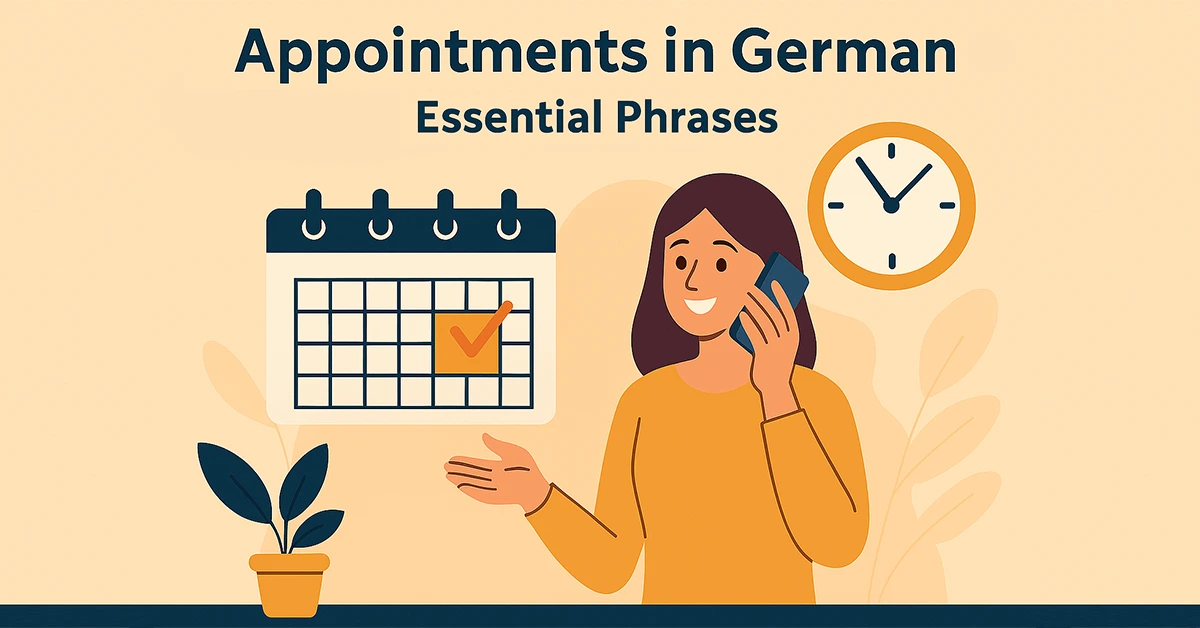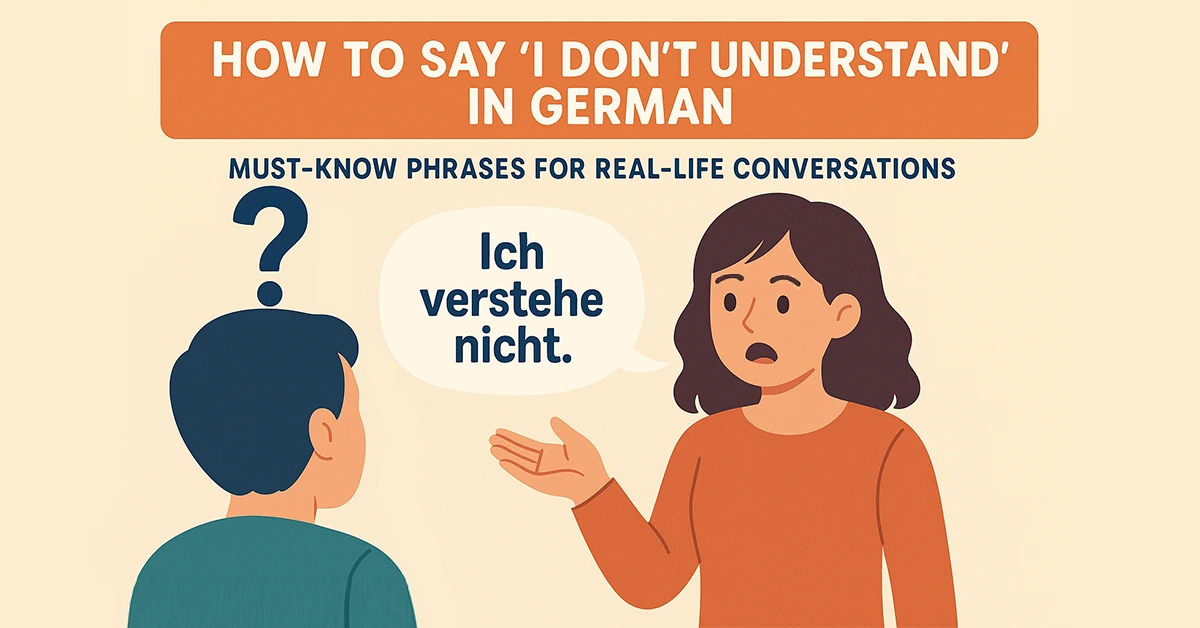German dialogues
-

Making Appointments in German – Essential Phrases
Learn 50+ essential German phrases & real-life dialogues for making appointments. Doctor, salon, office & more. Download your free PDF cheat sheet!
-

How to Say “I Don’t Understand” in German – Essential Phrases
Learn how to say “I don’t understand” in German with essential phrases, polite alternatives, real-life examples, and pronunciation tips to boost communication.
-

German Supermarket Phrases You Must Know
Learn essential German supermarket phrases for your next grocery trip in Germany. Master expressions for asking prices, reading labels, and getting help, with examples.